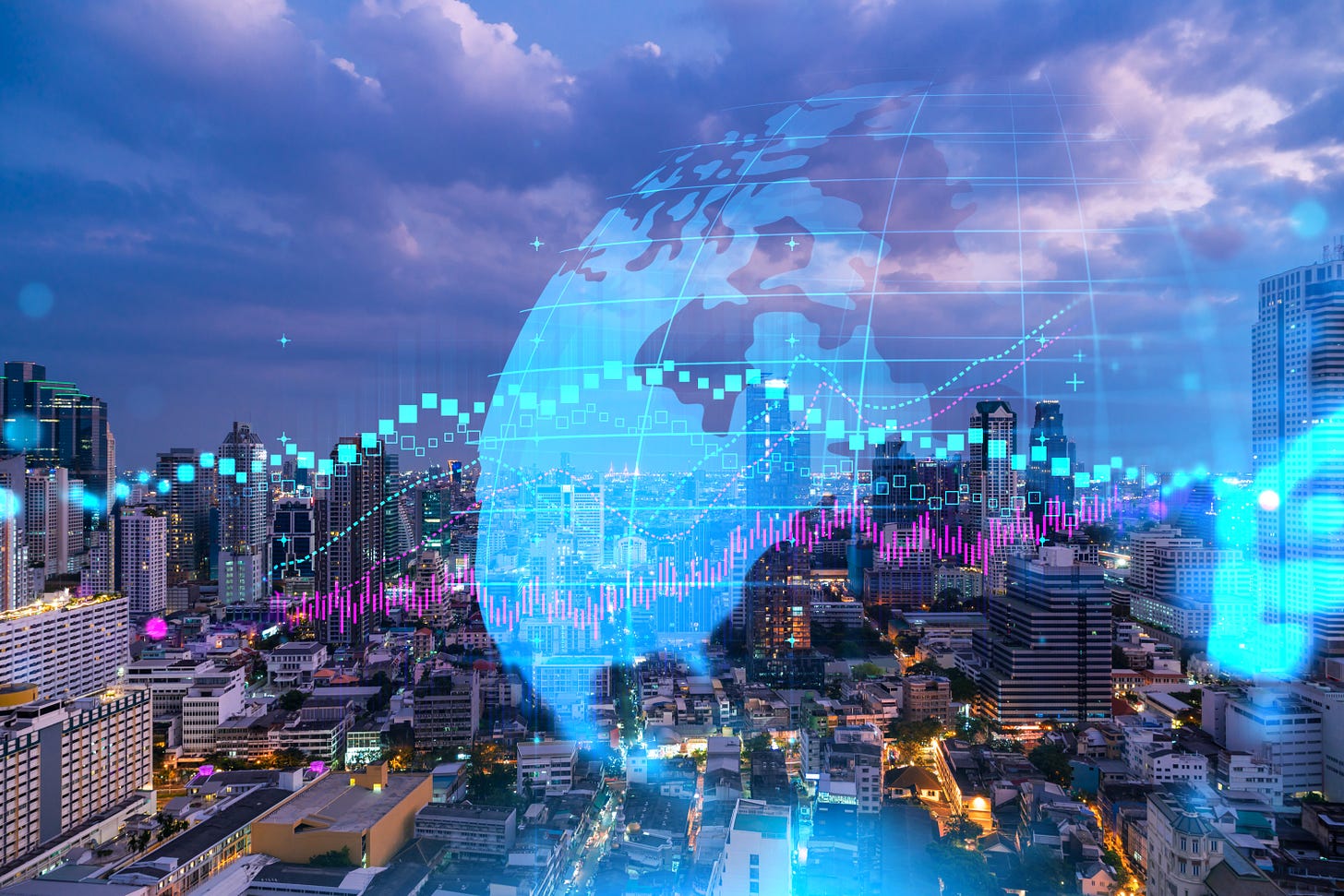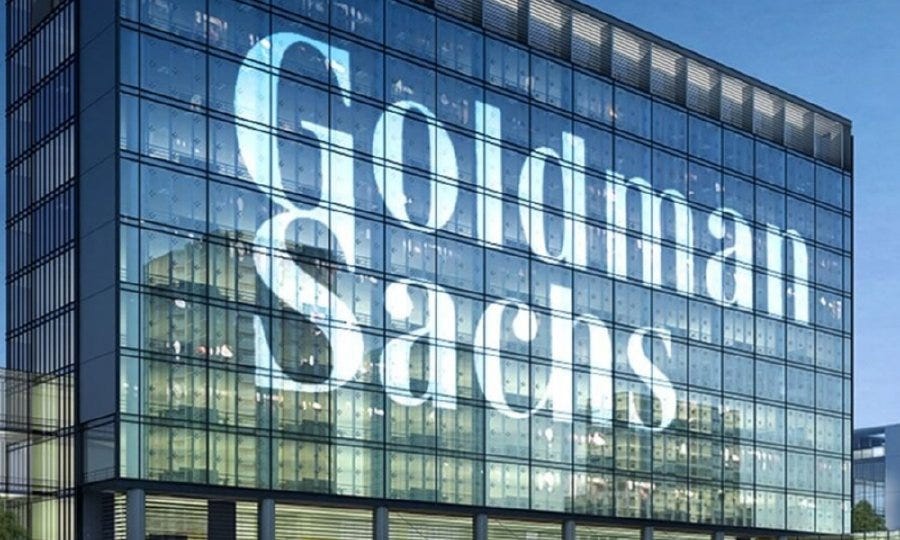Emerging Markets Daily - January 31
IMF Warns EM on Crypto, Goldman Pushes Deeper into China, South Africa's Rising Rand, Y Combinator's New EM Strategy, Asian Oil Importers Weigh Ukraine Risk
The Top 5 Stories Shaping Emerging Markets from Global Media - January 31
Crypto Risks Destabilizing Emerging Markets, IMF Says
Financial Times
“Sharp price swings in cryptocurrencies are causing ‘destabilising’ capital flows in emerging markets, and the use of crypto in place of traditional currencies poses ‘immediate and acute risks’, according to a senior official at the IMF.”
“‘Crypto is being used to take money out of countries that are regarded as unstable [by some external investors],’ said Tobias Adrian, the IMF’s financial counsellor and head of its monetary and capital markets department. ‘It is a big challenge for policymakers in some countries,’ Adrian said in an interview with the Financial Times, noting that ‘cryptocurrency markets have lost about $1tn in value since the peak’.”
“The IMF last week urged El Salvador to stop recognising bitcoin as legal tender, reiterating its warning that official adoption of the digital asset last year presented ‘large risks’ for the stability and integrity of the country’s financial system. Nayib Bukele, the president of El Salvador — which is seeking more than $1bn in financing from the IMF — plans to raise money by selling bonds linked to the world’s biggest cryptocurrency.”
“The scheme has drawn criticism from some of the international investors that own debt already issued by the government. Adrian said some emerging markets and developing economies now faced ‘immediate and acute risks’ as a result of their existing established currencies being replaced by crypto assets, a process that has been dubbed ‘cryptoisation’.” Chris Flood reports.
Goldman Sachs Accelerates China Push
Nikkei Asia/Caixin
“China is the world's most populous nation and one of its biggest capital markets, and foreign investment banks are eager to grab a slice of the action. Goldman Sachs Group Inc. is right at the head of the pack.”
“In October, it became the second foreign investment bank to get the go-ahead to take 100% ownership of its Chinese securities joint venture, Goldman Sachs Gao Hua Securities Co. Ltd., ending a 17-year partnership with veteran financier Fang Fenglei. That followed approval in May to set up a majority-owned wealth management venture with Industrial & Commercial Bank of China Ltd. (ICBC), the world's largest commercial lender by assets.”
“The Wall Street giant has big plans for China and is already ahead of its target to double its onshore workforce to 600, one of the goals laid out in a five-year growth strategy in 2019. The bank is looking to grow all of its four global business lines -- investment banking, global markets, asset management, and consumer and wealth management…”
“Sean Fan, chairman of the securities venture and co-head of investment banking in China, pointed to longer-term plans. ‘We hope to bring in all of Goldman Sachs's global businesses into China when the opportunity arises,’ Fan told Caixin. ‘Many of the businesses will need more than past experience. We will invest into IT platforms, AI technology and people to be consistent with the company's global standards.’”
“In China, securities companies are typically involved in investment banking, research, equities and fixed income. Having 100% ownership of the operation rather than 30% or 70% ‘means a stronger commitment to investing in licenses, capital and people,’ Leland said.”
“The official blessing will give the bank more freedom to grow its business in China at a time when the government is accelerating the opening-up of the country's financial markets.” Wang Liwei reports.
South Africa’s Rand Continues Steady Rise Against the Dollar
Bloomberg
“South Africa’s rand is one of the few emerging-market currencies still set for monthly gains after last week’s rout.”
“Four months of back-to-back declines have left the currency looking undervalued and strategists say there’s still room for appreciation. That’s even after jitters about Fed tightening put the rand’s rebound on hold last week, when it was the worst performer among peers against the greenback.”
“The rand was climbing again on Monday, set to end the month up almost 3% against the dollar and the only developing-nation currency outside Latin America to gain in January.”
“‘The rand is still underheld, or net short according to our transactions,’ said Geoffrey Yu, senior EMEA markets strategist at BNY Mellon. ‘Even if we take a breather, there will be interest in re-engaging.’ iFlow reports from BNY Mellon, which track purchases of foreign exchange, equities and bonds on a daily basis based on data about its $45 trillion assets under custody, show strong purchases of rand-denominated assets, Yu said.”
“Christian Wietoska, head of CEEMEA research at Deutsche Bank, sees few alternatives in local-currency bonds. He cited ongoing monetary-policy tightening in central and Eastern Europe, ‘idiosyncratic issues’ in Turkey, Russia and Ukraine, as well as stretched valuations in Egypt.” Colleen Goko reports.
Y Combinator’s New Investment Strategy in Emerging Markets: Start-ups Like It, But Other VCs and Local Investors are Fearful
Rest of World
“Y Combinator’s recent announcement that it would now offer startups in its vaunted accelerator program greater funds in exchange for favorable investment terms has left founders in Africa and Latin America feeling excited about the prospect of more capital — and local investors wary of Y Combinator’s increasing power in emerging markets.”
“Founded in 2005, Y Combinator has become more geographically diverse over the past few years as it accepts more applicants from emerging markets from across the Global South. That includes Nigerian fintech startup Flutterwave and the Colombian delivery giant Rappi.”
“Previously, companies accepted into the program received $125,000 for 7% equity upfront. Now, companies will receive an additional $375,000, with Y Combinator automatically included in the startup’s first round of funding out of the accelerator. That promises to make Y Combinator an even more influential fixture across the global tech ecosystem...”
“For startups working with tight runways and unforgiving balance sheets, the calculus was simple. ‘It’s more money — it’s a good thing,’ said Yael Israeli, the co-founder and CFO of the fintech Mozper, which joined YC in 2020 and operates in Mexico and Brazil.”
“But not everyone was optimistic about the impact of the new deal structure in emerging markets. ‘The problem [with Y Combinator] in these emerging markets is it’s taking on this role of king-making,’ says Claire Díaz-Ortiz, a VC working in Latin America. She has seen firsthand the outsized impact of Y Combinator in the Global South. YC represents one of the most prominent premier funds for emerging markets — more than 10% of its summer 2021 class featured Latin American companies.” Leo Schwartz and Aubabakar Idris report.
Asian Countries Evaluate Oil, Gas Price Risks Amid Ukraine Tensions
S&P Global Platt’s
“The oil and gas ministries of Asian countries have been assessing the risk of surging fuel prices and supply disruptions due to the Ukraine conflict, and evaluating contingency plans in consultations with national oil companies and other energy firms.”
“South Korea is concerned about price hikes of crude oil and LNG due to the Ukraine crisis, an energy ministry official said Jan. 27, but has so far ruled out any major impact on supply chains because its purchases are based on long-term contracts.”
“…South Korea, the world's fifth-biggest crude oil buyer and the world's third-biggest LNG buyer, is vulnerable to price hikes because it imports all of its crude oil and LNG requirements.”
“…The prolonged tension could push up prices of oil and other types of energy, and a possible armed clash and subsequent US sanctions against Russia could disrupt global trade and supply chains and have far-flung implications across the globe..”
“Indian LNG importers ruled out any immediate fallout on gas supplies as the Ukraine transit point is meant for Russian gas supplies to Europe, oil ministry officials said Jan. 27, allaying fears of any short-term supply crunch if tensions escalate.”
“Officials said a possible war-like crisis between Russia and Ukraine would not make supplies to India costlier as the global price depends on supply and demand factors, and US LNG producers have been producing while the winter season in Europe is set to subside.”
"‘We expect the global price to ease after March by when the winter season in Europe would be over,’ an official at Petronet LNG, India's largest state-run LNG importer, said.” Platt’s reports.
“In the name of God, stop a moment, cease your work, look around you.”
― Leo Tolstoy






